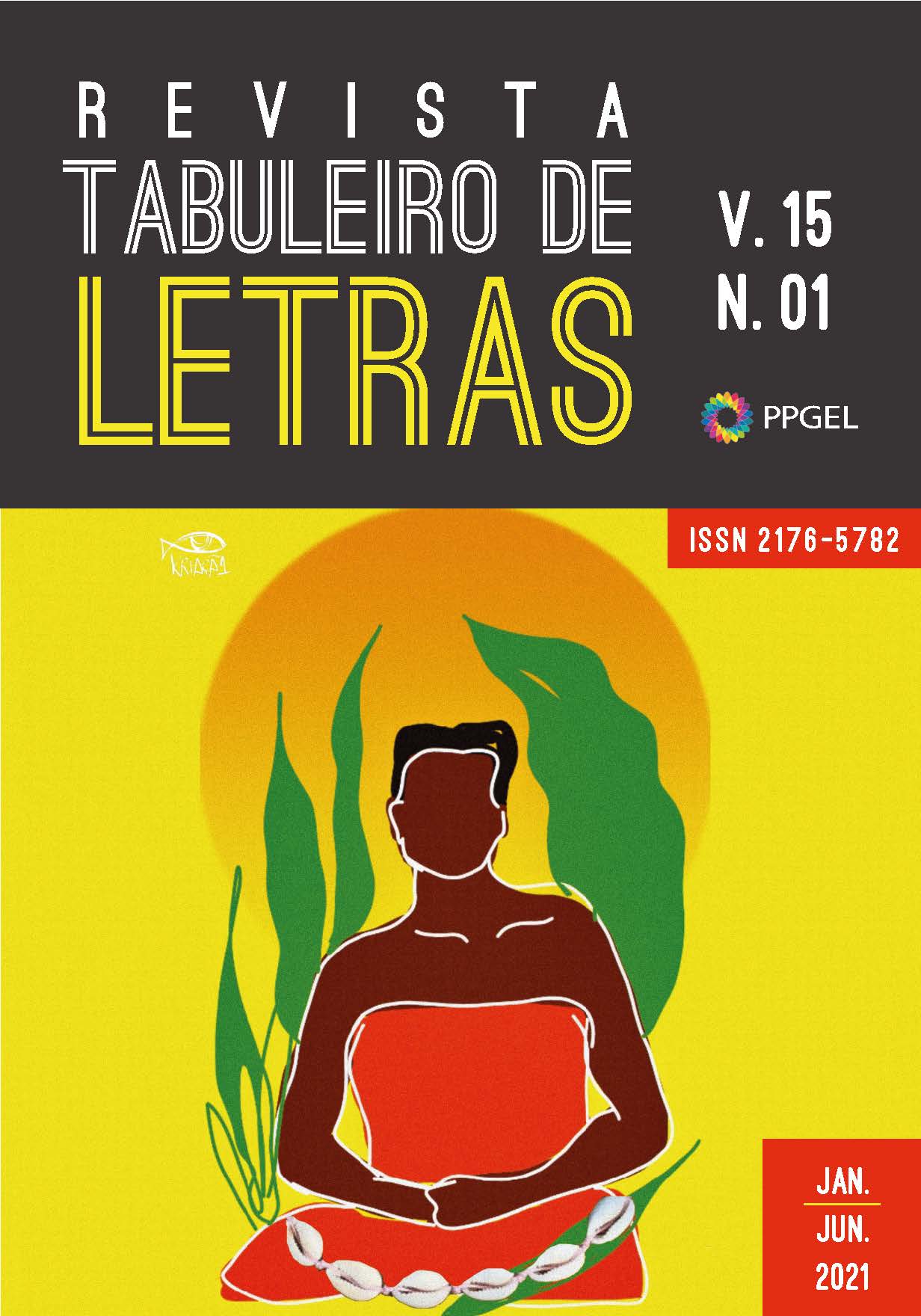Ciranda de Pedra e Fazes-me Falta
A linguagem errante em Lygia Fagundes Telles e Inês Pedrosa
DOI:
https://doi.org/10.35499/tl.v15i1.11174Abstract
This paper aims at a dialogue between contemporary Brazilian and Portuguese literature, focusing on the analysis of the novels Ciranda de Pedra, by Lygia Fagundes Telles, and Fazes-me Falta, by Inês Pedrosa; through the perspective of language, knowing that this category, in the work of the referred authors, is shown as errant, full of vague spaces, dwelling in incompleteness, and demonstrating to be impotent to clarify what has been said. When it comes to the Brazilian writer, this is her debuting novel, in which she herself considers it as a watershed in her literary career for being aesthetically more elaborate than the other ones. On the other hand, Inês Pedrosa, according to the critics, started to appear in the literary field, mainly, because of this novel. Because of this, both books were significant to their success, which can also be justified by the irreverence in the language within their pages. The analysis will be introduced through the eyes of theorists and critics that have contributed to the study of contemporary literature, specially Maurice Blanchot (1997; 1987). In order to understand the examination made by the critics about Pedrosa and Lygia’s fiction, works by Diana Navas, Telma Ventura (2017) and Sônia Régis (1998) –amongst others – will be consulted. The studies about the works of both authors have been growing since more readers have gotten to know the meaningful romantic legacy that awaits new researchers willing to plunge into their winding language.
Downloads
References
BLANCHOT, Maurice. O espaço literário. (Trad.) Álvaro Cabral. Rio de Janeiro: Rocco, 1987.
CANDIDO, Antonio. A nova narrativa. In: A educação pela noite e outros ensaios. São Paulo: Editora Ática, 1989.
DELEUZE, Gilles. Crítica e Clínica. (Trad.) Peter Pál Pelbart. São Paulo: Ed. 34, 1997.
DELEUZE, Gilles; GUATTARI, Félix. Mil Platôs: capitalismo e esquizofrenia. Vol.1. São Paulo: Ed. 34, 2011.
DRUMMOND DE ANDRADE, Carlos. Carta. In. TELLES, Lygia F. Ciranda de Pedra. Rio de Janeiro: Rocco, 1998.
GOMES, Carlos Magno. A circularidade da escrita de Lygia Fagundes Telles. Alea, Rio de Janeiro, v. 19, n. 3, p. 557-570, dez. 2017. Disponível em <http://www.scielo.br/scielo.php?script=sci_arttext&pid=S1517-106X2017000300557&lng=pt&nrm=iso>. Acessos em 02 mar. 2020. https://doi.org/10.1590/1517-106x/2017193557570
NAVAS, Diana; VENTURA, Telma. A escrita feminina em Fazes-me falta, de Inês Pedrosa: o (des)tecer narrativo. Litcult. Disponível online, 2017.
NAVAS, Diana; VENTURA, Telma. “A escrita feminina em Fazes-me falta: corpo morto, corpus descontruído”. In: Revista Desassossego. São Paulo, USP. 18, abr.-dez. 2017. p. 85-100. Disponível em <http://www.revistas.usp.br/desassossego/article/view/131468>. Acesso em 20 nov. 2019.
PEDROSA, Inês. Fazes-me falta. [recurso eletrônico] / Inês Pedrosa. Rio de Janeiro: Objetiva, 2011. Formato: e-PUB.
REAL, Miguel. O romance português contemporâneo: 1950-2010. Lisboa: Caminho, 2012.
REIS, Carlos. “Estudos narrativos”. In: Dicionário de Estudos narrativos. Coimbra: Almedina, 2018. p. 119-132.
RÉGIS, Sônia. A densidade do aparente. In: Cadernos de literatura brasileira: Lygia Fagundes Telles. Nº 5. São Paulo: Instituto Moreira Salles, março 1998.
SANTIAGO, Silviano. Posfácio. In: TELLES, Lygia Fagundes. Ciranda de pedra. São Paulo: Companhia das Letras, de 2009.
TELLES, Lygia F. Ciranda de Pedra. Rio de Janeiro: Rocco, 1998.
Downloads
Published
How to Cite
Issue
Section
License
Autor(es) conservam os direitos de autor e concedem à Revista o direito de primeira publicação, com o trabalho simultaneamente licenciado sob a Licença Creative Commons Attribution que permite a partilha do trabalho com reconhecimento da autoria e publicação inicial nesta Revista.

















